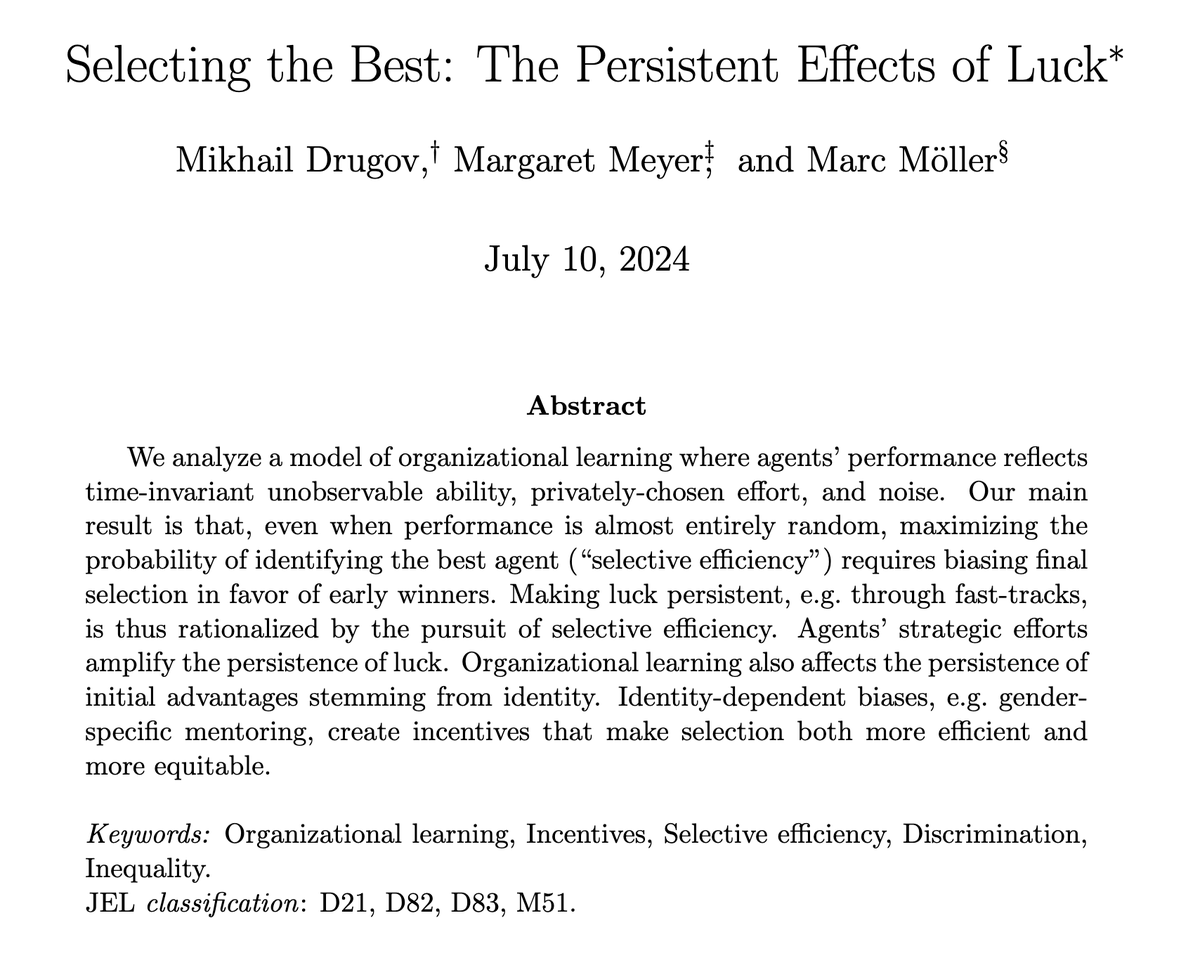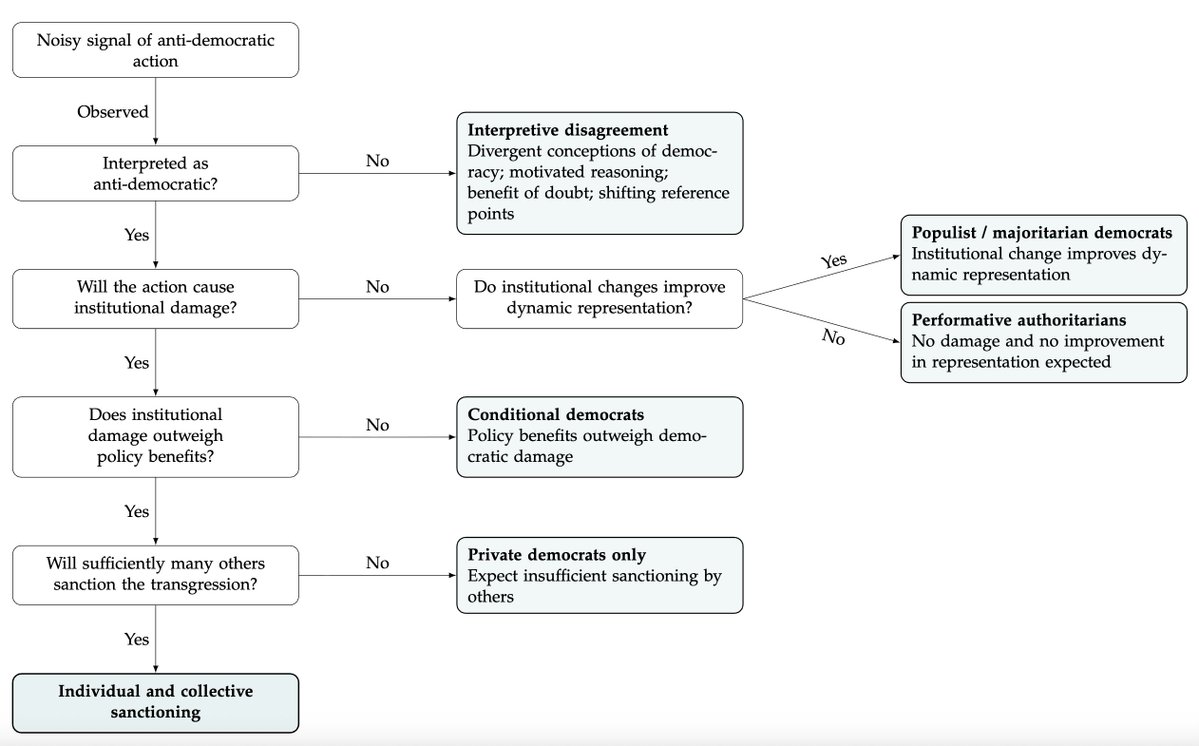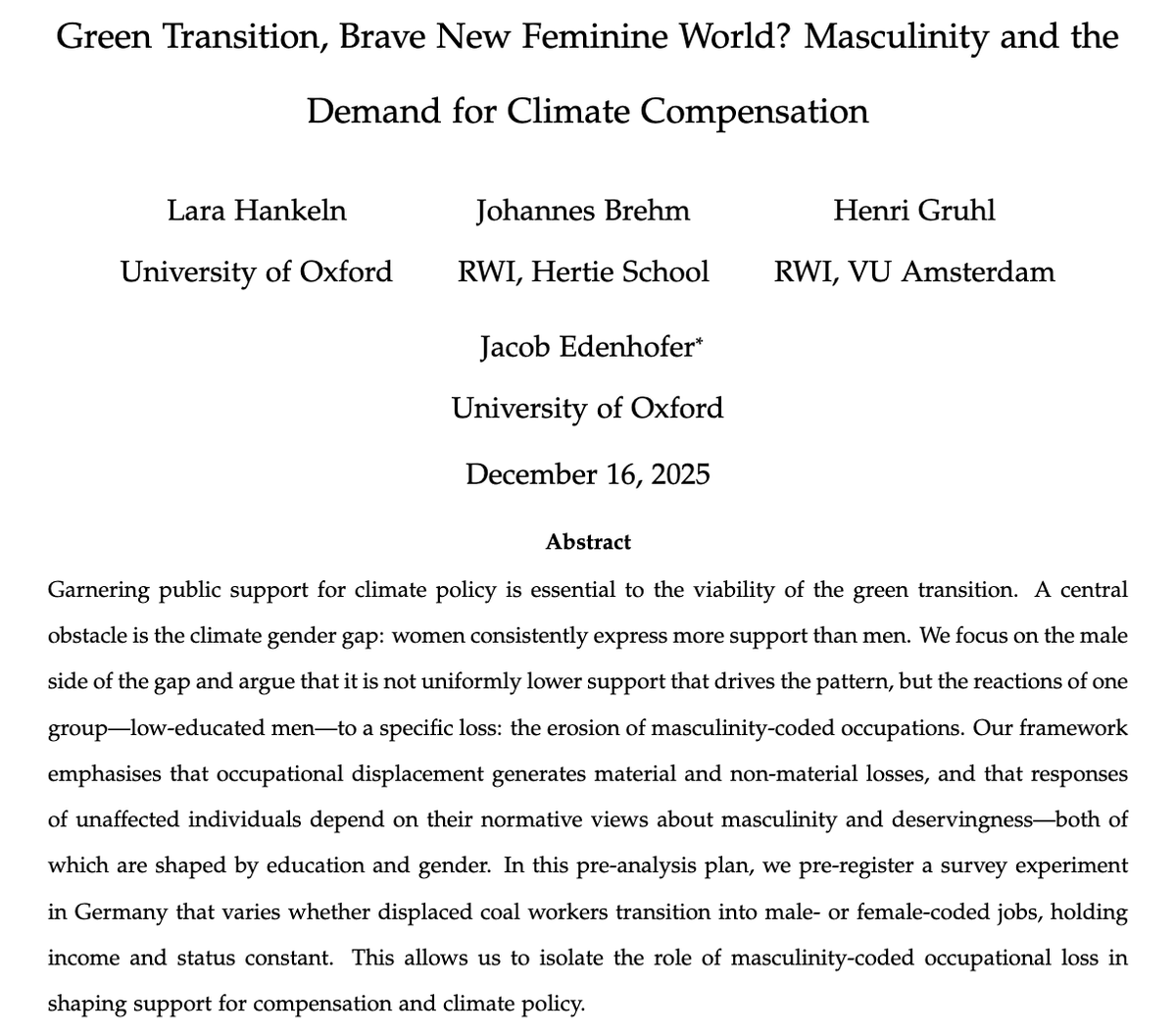These maps are interesting. Given the pre-existing differences between the East and West, however, we cannot simply "eyeball" the effects of the GDR regime, though some of the variation is likely causal.
Here are some of my favourite works that help us think carefully ... 1/11
Here are some of my favourite works that help us think carefully ... 1/11
https://twitter.com/tomaspueyo/status/1757777718509195512
about the GDR regime's effects.
1. I've pointed to this great paper so many times that I feel like a broken record, but this by @essobecker, @LukasMergele, and @Woessmann is essential reading 2/11
1. I've pointed to this great paper so many times that I feel like a broken record, but this by @essobecker, @LukasMergele, and @Woessmann is essential reading 2/11
https://x.com/essobecker/status/1238013473948200962?s=20
2. This by Kern and Hainmueller is an absolute classic and leverages the variation generated in large part by the topography of the valley of the unaware ("Tal der Ahnungslosen") around Dreseden.
3/11cambridge.org/core/journals/…
3/11cambridge.org/core/journals/…
3. Bursztyn and Cantoni's paper use a similar identification strategy, but look at a different outcome, i.e. consumption, rather than attitudes.
4/11direct.mit.edu/rest/article-a…
4/11direct.mit.edu/rest/article-a…
4. Another great paper is this @JEEA_News piece by Lichter, Löffler, and @Sigginho. They use within-GDR differences in spying intensity to examine the effects on trust and, more broadly, social capital.
5/11academic.oup.com/jeea/article/1…
5/11academic.oup.com/jeea/article/1…
5. For non-German readers, let me note that imo Jens Gieseke's (@zzfpotsdam) history of the Stasi is unrivalled. English translation here
6/11amazon.co.uk/History-Stasi-…
6/11amazon.co.uk/History-Stasi-…
Recently, a number of papers have come out that analyse the (i) process of privatisation (via the Treuhand) and (ii) effects of privatisation on economic and political outcomes.
6. This🧵and the related paper are absolute must-reads. 7/11
6. This🧵and the related paper are absolute must-reads. 7/11
https://twitter.com/MoritzLubczyk/status/1306209143204782083
7. Then, there is this interesting working paper by @ufukakcigit and co-authors.
8/11nber.org/papers/w31645
8/11nber.org/papers/w31645
8. This paper by @BachmannRudi et al. sheds light on the role of monopsony in creating productivity differences between East and West German firms.
9/11papers.ssrn.com/sol3/papers.cf…
9/11papers.ssrn.com/sol3/papers.cf…
9. On the political effects of privatisation, see the work by Hennicke, @anselmhager, @krause_we, and @LukasMergele
10/11osf.io/preprints/osf/…
10/11osf.io/preprints/osf/…
10. @HansLueders has a new paper in @World_Pol, where he shows that the economic uncertainty associated with East Germany's democratisation has long-lasting effects, with East Germans responding more strongly to present economic uncertainty. 11/END
muse.jhu.edu/pub/1/article/…
muse.jhu.edu/pub/1/article/…
Addendum: See this🧵of mine for some more general thoughts on the "workings" of autocracies:
https://x.com/edenhofer_jacob/status/1757539820140696055?s=20
@threadreaderapp unroll
• • •
Missing some Tweet in this thread? You can try to
force a refresh








